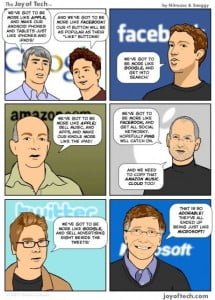When you are thinking of getting a Master’s or doctoral degree in America, some of the top questions on your mind would be:
• What are the academic requirements in order to be able to apply?
• What are the costs of getting a degree in the US?
• What are the job prospects?
Here’s a quick look at the answers to those questions.
What is the eligibility for applying for a Master’s course in America?
The basic eligibility requirement is 16 years of formal education (12 + 4), the last 4 from an accredited university. So, students who have bachelor’s degrees in engineering (whether they joined engineering courses directly after the 12th Std. or after a diploma course) can directly apply for American Master’s courses. However, students who have completed a three-year degree (e.g. B.Sc.) should ideally complete their Master’s degrees (e.g. M.Sc.) in India and then apply.
Note: External degrees and degrees from open universities that are not accredited may not accepted by American universities.
What is the cost of education in America?
The cost of education in America varies from Rs. 12,00,000 to Rs. 30,00,000 depending on:
• the type of university (private or government-aided)
• its rank
• its geographical location
Apart from tuition fees you also have to bear the costs of:
• insurance
• living (food + housing)
• transportation.
There are many ways to reduce these financial burdens however. Many students manage to get some kind of financial assistance in the form of:
• research and teaching assistantships
• tuition waivers
• on-campus jobs etc.
Such kinds of financial assistance take care of a large part of the expenses incurred when studying in America.
What are the job prospects after completing a Master’s degree course in America?
• After completing your course you are allowed to undertake Optional Practical Training (OPT) for 12 months. OPT may be extended for another 17 months if you fall under the STEM (Science, Technology, Engineering and Mathematics) category
• Ample job opportunities exist in the fields of engineering and computer science (much tech talent in America is Indian and many Indians hold top positions the field – as is evident from the case of Satya Nadella, CEO Microsoft).
Note:
• Professors’ recommendations carry a lot of weight. To get a job you must get excellent references from professors who taught you during your master’s course.
• When you are working in America, your company may apply for H1-B visa (work permit) on your behalf. After this you can apply for a green card.
So, get ready to get your MS in US!





